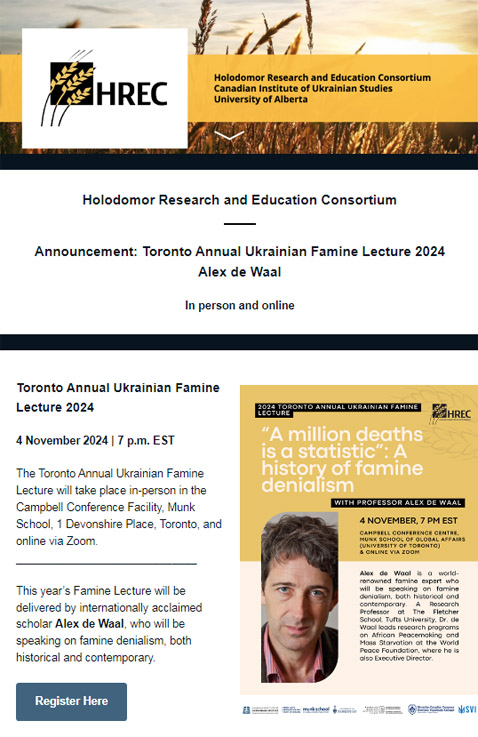
“It’s common for those responsible for famines to deny them, while they are raging and afterwards. This was the case in colonial India and post-colonial China, Ethiopia, Sudan, and Yemen. At the time of the Holodomor, Josef Stalin infamously said, ‘If one man dies of hunger, it is a tragedy. A million deaths is a statistic.’ Denialism takes several forms, including outright factual denial—explaining the calamity as something else and giving a different meaning to starvation in order to justify inflicting it. Today, with internationally validated metrics for measuring food insecurity and determining ‘famine,’ such as the United Nations–accredited Integrated Food Security Phase Classification (IPC), denialists have adopted new methods for dealing with inconvenient statistics. The deepest denial is that famines are man-made, profound societal traumas.”
Alex de Waal is a research professor at the Fletcher School, Tufts University, and leads research programs on African peacemaking and mass starvation at the World Peace Foundation, where he is the executive director.
Professor de Waal is the author of Mass Starvation: The History and Future of Famine, The Real Politics of the Horn of Africa, and, most recently, New Pandemics, Old Politics: Two Hundred Years of War on Disease and its Alternatives. He has led projects on conflict and humanitarian crises in Africa (2006–9), and his scholarly work and practice probe issues related to humanitarian crisis and response, human rights, pandemic disease, and conflict and peace-building. This year de Waal received the Huxley Award of the Royal Anthropological Institute, which recognizes distinguished achievement in anthropological research.
The Toronto Annual Ukrainian Famine Lecture was inaugurated in 1998 by the CIUS Toronto Office in partnership with the Toronto branch of the Ukrainian Canadian Congressand, subsequently, the Petro Jacyk Program for the Study of Ukraine at the University of Toronto’s Centre for European and Eurasian Studies. The longest-running annual lecture on the Holodomor, today it is organized by the Holodomor Research and Education Consortium in conjunction with the original partners, the Canadian Foundation for Ukrainian Studies, and St. Vоlоdymyr Institute.
